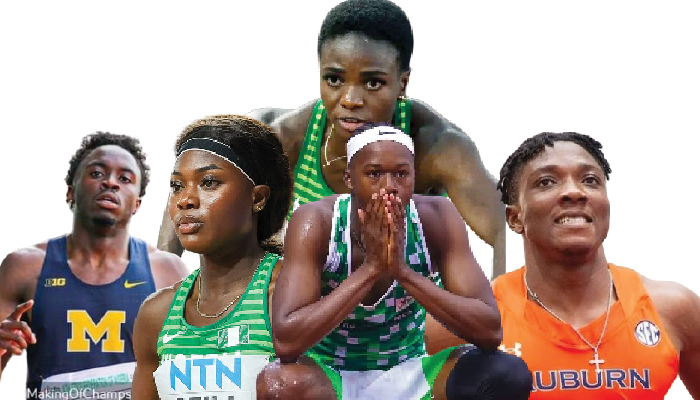The Athletics Federation of Nigeria (AFN) has withdrawn its team from the 2025 World Relays in Guangzhou, China, citing insurmountable visa challenges as the primary reason. The federation expressed profound disappointment and frustration with the Chinese authorities, alleging deliberate obstruction and bureaucratic incompetence in the visa application process. Despite initiating the application process as early as February, the AFN claims their athletes faced a barrage of hurdles, including last-minute visa issuances, making participation logistically impossible. This forced withdrawal represents a significant setback for Nigerian athletics, impacting not only the athletes’ preparations and morale but also resulting in substantial financial losses and jeopardizing crucial qualification opportunities for future international competitions.
The AFN’s statement detailed the litany of obstacles encountered during the visa application process. They accused the Chinese authorities of issuing incorrect invitation letters, repeatedly changing the application portal, and demanding excessive and inconsistently applied documentation. Among these demands were police reports and bank statements from all athletes, coaches, and officials, requirements the AFN deemed unnecessary and burdensome. Furthermore, the federation claims the Chinese authorities feigned ignorance, stating they had no contact with their own embassies in Washington and Abuja, further complicating the already arduous process. The constantly shifting requirements and lack of clear communication from the Chinese side created a chaotic and ultimately insurmountable barrier for the Nigerian team.
AFN President Tonobok Okowa voiced his strong disapproval, suggesting the visa delays were a deliberate attempt to prevent Nigeria’s participation. The timing of the visa issuance, coinciding with the team’s scheduled arrival date, fueled suspicions of intentional obstruction. This perceived act of exclusion has not only dashed the hopes of Nigerian athletes but also cast a shadow over the World Relays event. Okowa urged World Athletics to reconsider its host selection criteria, prioritizing countries with more efficient and athlete-friendly visa procedures to avoid similar debacles in the future. The AFN’s call for accountability highlights the need for streamlined and transparent processes to ensure fair and equitable participation for all nations in international sporting events.
The consequences of this forced withdrawal are far-reaching. The athletes, who had diligently prepared for the competition, face the devastating disappointment of missed opportunities and the psychological impact of thwarted ambitions. The financial implications are also significant, with the AFN seeking compensation for the wasted investment in training, travel arrangements, and other related expenses. Furthermore, the team has lost valuable opportunities to qualify for upcoming world championships, impacting their long-term competitive prospects. This incident underscores the importance of smooth and efficient administrative processes in international sports, emphasizing the need for host nations to facilitate, rather than obstruct, the participation of athletes.
Prior to the withdrawal, Nigeria had assembled a formidable team, including prominent athletes like Tobi Amusan, the women’s 100m hurdles record holder, and Favour Ofili, a Paris 2024 Olympics 200m finalist. The team was slated to compete in four events: men’s and women’s 4x100m relays, the 4x400m mixed relay, and the newly introduced 4x100m mixed relay. The AFN had high hopes for achieving World Championship qualification through strong performances at the World Relays. The loss of this opportunity represents a significant blow to the development and progression of Nigerian athletics on the global stage.
This incident highlights the critical role of efficient and transparent visa procedures in ensuring fair and equitable participation in international sporting events. The AFN’s experience serves as a cautionary tale, underscoring the need for host nations to prioritize the seamless facilitation of athlete participation and avoid bureaucratic hurdles that can undermine the spirit of international competition. The call for accountability and revised host selection criteria by the AFN prompts a broader discussion about the responsibilities of host nations and the importance of protecting the rights and opportunities of athletes worldwide. The incident’s fallout will likely have lasting implications for the relationship between the AFN and the Chinese athletic authorities, and it remains to be seen how World Athletics will respond to the AFN’s demands for compensation and revised selection criteria.














